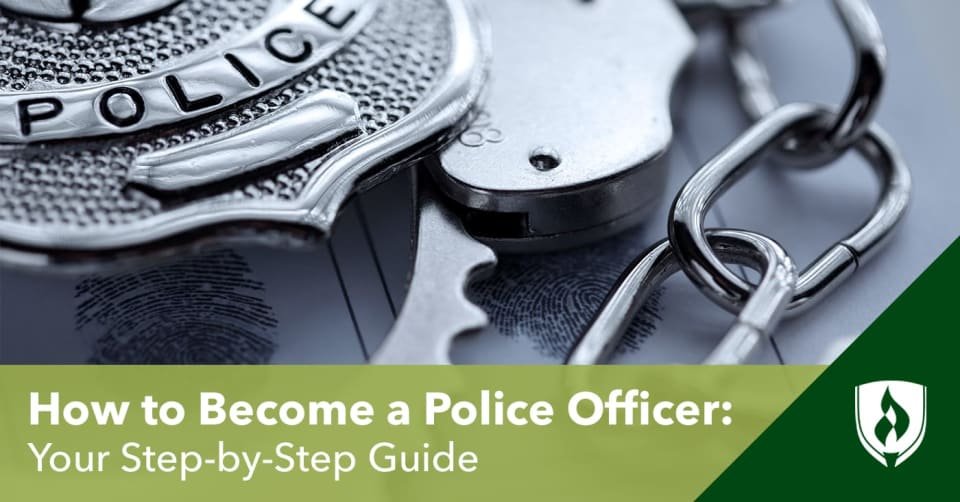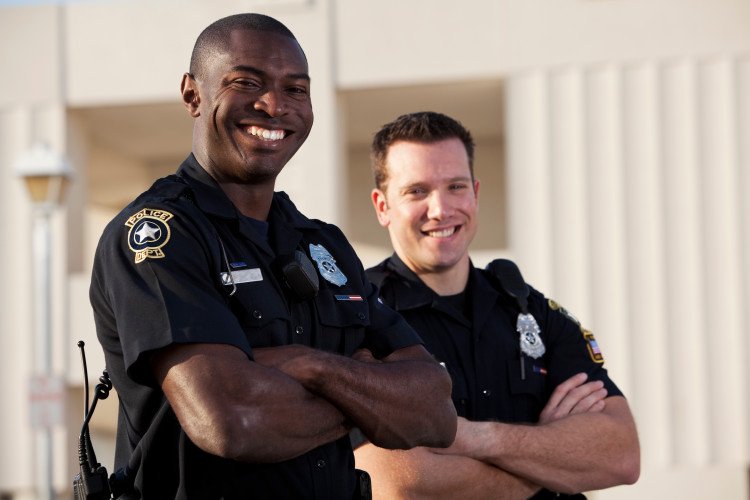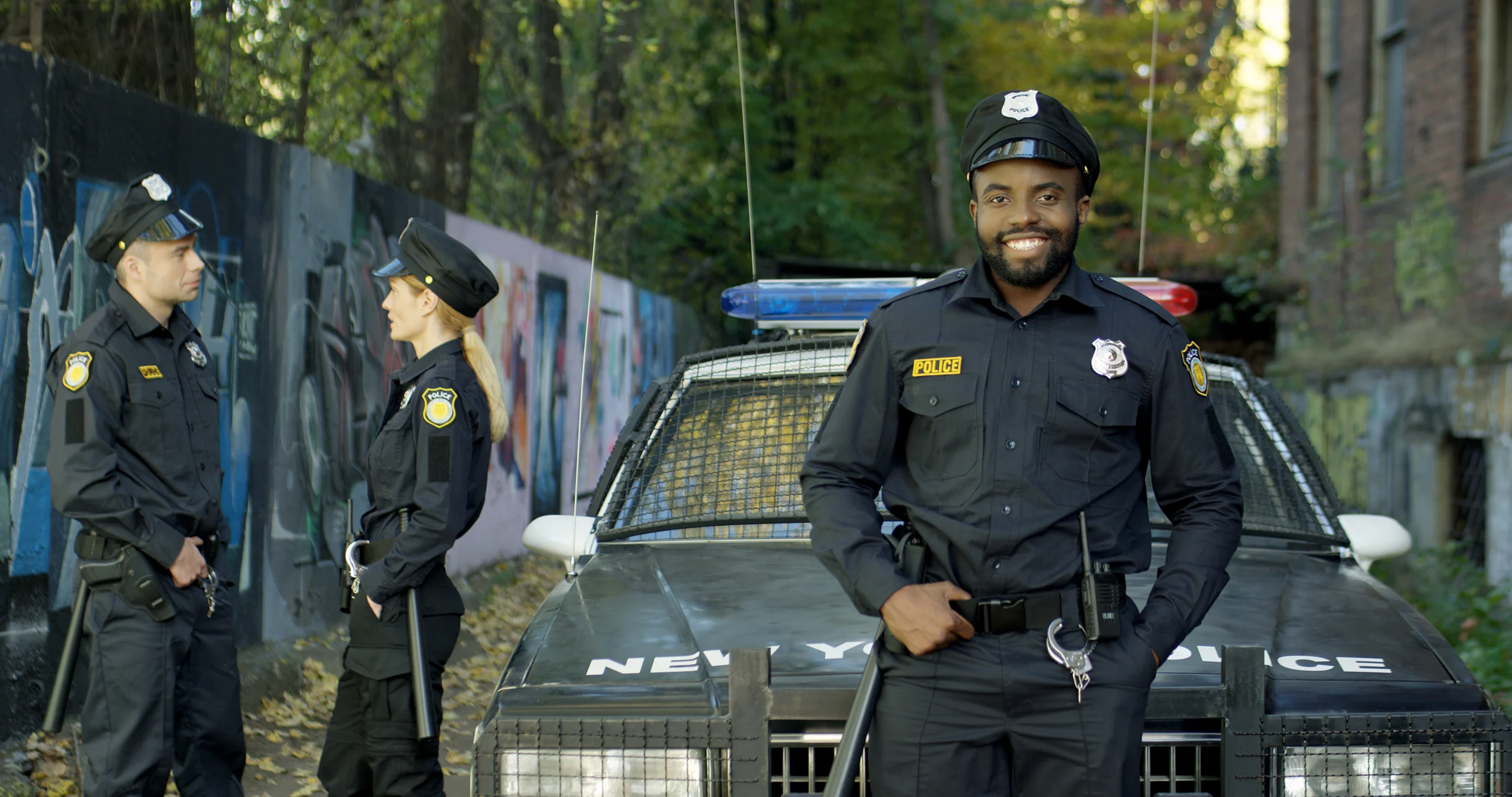Are you ready to embark on an exciting journey towards becoming a police officer in the USA? This informative guide will provide you with a comprehensive overview of what it takes to pursue a rewarding career in law enforcement. From the multitude of opportunities available to the qualifications and qualities necessary for success, we’ve got you covered. Whether you’re a student considering a future in the field or simply curious about the world of police work, this article will equip you with the knowledge needed to take the first step towards a fulfilling profession as a police officer.
A Guide to Pursuing a Career as a Police Officer in the USA
Are you interested in a challenging and rewarding career in law enforcement? Becoming a police officer in the USA can provide you with an opportunity to serve your community, protect its citizens, and make a difference in the lives of others. To embark on this exciting career path, it is important to understand the educational requirements, physical fitness and health standards, age and citizenship criteria, background checks and character evaluations, licensing and certification procedures, the application and hiring process, training and probationary periods, career advancement opportunities, salary and benefits, as well as the challenges and rewards of a career in law enforcement. In this comprehensive guide, we will explore each of these aspects to help you pursue your dream of becoming a police officer in the USA.

This image is property of res.cloudinary.com.
1. Educational Requirements
1.1 High School Diploma or Equivalent
To become a police officer, a high school diploma or its equivalent is typically the minimum educational requirement. This ensures that candidates possess basic academic skills and knowledge.
1.2 College Degree
While a college degree is not always mandatory, it can significantly enhance your chances of being hired and may open up more opportunities for career advancement in law enforcement. Many police departments prefer applicants who possess a bachelor’s degree in criminal justice, law enforcement, or a related field.
1.3 Police Academy Training
Upon meeting the educational requirements, aspiring police officers are required to complete rigorous training at a police academy. This training provides candidates with the necessary skills and knowledge to perform their duties effectively and ensures they are prepared for the challenges they may encounter in their law enforcement careers.
2. Physical Fitness and Health
2.1 Physical Fitness Requirements
Police work can be physically demanding, requiring officers to be in good physical condition. Physical fitness tests are often conducted as part of the hiring process and may include assessments of strength, endurance, and agility. Maintaining a healthy lifestyle and regularly engaging in physical exercise can help prepare you for the physical demands of the job.
2.2 Medical and Psychological Evaluations
In addition to physical fitness, candidates must also undergo medical and psychological evaluations to ensure they are physically and mentally fit for duty. These evaluations are performed to assess an individual’s overall health, potential risk factors, and psychological suitability for a career in law enforcement.

This image is property of media.cdn.lexipol.com.
3. Age and Citizenship Requirements
3.1 Age Requirement
To become a police officer in the USA, you must meet the minimum age requirement set by each state or jurisdiction. In most states, the minimum age to apply is 21 years, although some jurisdictions may allow individuals as young as 18 to apply.
3.2 U.S. Citizenship
U.S. citizenship is generally required to become a police officer in the United States. This requirement helps ensure that candidates are committed to upholding the values and laws of the country they serve.
4. Background Check and Character Evaluation
4.1 Background Investigation
As part of the hiring process, a comprehensive background investigation is conducted on applicants. This investigation aims to verify the accuracy of provided information, identify any criminal history, and determine the applicant’s suitability for a career in law enforcement.
4.2 Criminal Record Check
A thorough criminal record check is essential to ensure that candidates have not been involved in any criminal activities that would deem them unfit for a law enforcement position. Any prior criminal convictions may disqualify an applicant from consideration.
4.3 Drug Testing
Candidates are typically required to undergo drug testing to ensure that they are free from drug use and are capable of performing their duties without impairment. Drug-free workplaces are crucial in maintaining the integrity and effectiveness of law enforcement agencies.
4.4 Character Evaluation
Law enforcement agencies place great importance on the character of their officers. During the hiring process, candidates undergo a character evaluation to assess their integrity, honesty, and moral standards. Evaluators may interview references, colleagues, and others who can provide insights into the applicant’s character.

This image is property of www.rasmussen.edu.
5. Licensing and Certification
5.1 State Certification
After successfully completing the required education, training, and background checks, candidates must obtain state certification to serve as a police officer. The specific certification requirements vary by state, with some states requiring additional exams or evaluations.
5.2 Law Enforcement Standards and Training Commission
Many states have a Law Enforcement Standards and Training Commission or similar entity that oversees and regulates law enforcement training and certification. These commissions set the standards for training programs and ensure that all officers meet the established requirements.
5.3 Additional Specialized Training or Certifications
Throughout their careers, police officers may have opportunities to engage in additional specialized training or certifications. These training programs can enhance their skills in specific areas such as SWAT, forensics, narcotics investigation, or crisis negotiation, allowing officers to take on more specialized roles within the police department.
6. Application and Hiring Process
6.1 Application Submission
To begin the process of becoming a police officer, candidates must typically submit an application to their desired law enforcement agency. This application includes personal information, educational background, employment history, and any relevant certifications or achievements.
6.2 Written Exam
Candidates may be required to take a written examination that assesses their cognitive abilities, problem-solving skills, and knowledge of law enforcement procedures. This exam is designed to evaluate an applicant’s suitability for a career in law enforcement and to measure their ability to effectively handle the challenges faced in the field.
6.3 Physical Abilities Test
To ensure that candidates meet the physical requirements of the job, a physical abilities test is often conducted during the hiring process. This test assesses a candidate’s physical strength, endurance, and agility, ensuring they are capable of performing essential job functions.
6.4 Oral Interview
Candidates who successfully pass the initial stages of the hiring process are typically invited to participate in an oral interview. This interview allows law enforcement officials to assess an applicant’s communication skills, problem-solving abilities, judgment, and overall suitability for a career in law enforcement.
6.5 Background Investigation
As mentioned earlier, a comprehensive background investigation is conducted to verify the accuracy of information provided by candidates, identify any criminal activity, and assess character. Investigators may review an applicant’s employment history, contact references, and explore their involvement in community activities.
6.6 Psychological Evaluation
Due to the inherent stress and potential dangers associated with police work, candidates are evaluated to ensure they possess the mental resilience required for a career in law enforcement. Psychological evaluations help identify any potential behavioral or mental health issues that may affect an individual’s ability to perform their duties effectively.
6.7 Medical Examination
A medical examination is conducted to assess an applicant’s overall health and physical ability to perform the job’s essential functions. This examination may include vision and hearing tests, as well as assessments of cardiovascular health, respiratory function, and general physical fitness.
6.8 Polygraph Test
To ensure the integrity and honesty of applicants, some police departments may require candidates to undergo a polygraph test, also known as a lie detector test. This test aims to verify the truthfulness of information provided during the hiring process and uncover any potential dishonesty or deception.
6.9 Final Hiring Decision
Following the completion of all the above steps, law enforcement agencies make final hiring decisions based on a comprehensive evaluation of each candidate’s qualifications, background, interview performance, and assessment results. Successful candidates are offered a position as a police officer and proceed to the next phase of their journey: training and probation.

This image is property of s3-us-east-2.amazonaws.com.
7. Training and Probationary Period
7.1 Police Academy Training
Upon being hired, newly appointed police officers must complete training at a police academy. This training program typically lasts several months and covers a wide range of topics such as criminal law, firearm safety and usage, emergency response procedures, defensive tactics, and community policing strategies. The academy training focuses on providing recruits with the fundamental knowledge and practical skills necessary for effective law enforcement.
7.2 Field Training Program
After completing police academy training, recruits often enter a field training program. During this phase, they work alongside experienced officers to gain practical experience and receive on-the-job training. This phase allows new officers to apply the knowledge and skills learned in the academy to real-life situations, under the guidance and supervision of seasoned professionals.
7.3 Probationary Period
Following the field training program, newly appointed officers usually enter a probationary period. This period typically lasts between six months to a year and serves as an evaluation of the officer’s performance and suitability for continued employment. During probation, the officer is closely supervised and may receive additional training or evaluations to ensure they are meeting the department’s expectations.
8. Career Advancement Opportunities
8.1 Promotional Ranks and Positions
A career in law enforcement offers numerous opportunities for advancement. As officers gain experience and demonstrate their abilities, they become eligible for promotional ranks and positions within their police department. These may include positions such as sergeant, lieutenant, captain, or even chief of police, depending on the size and structure of the department.
8.2 Specialized Units and Divisions
Police officers may have the chance to join specialized units or divisions within their department. These specialized units focus on specific areas such as canine units, SWAT teams, narcotics investigation, crime scene analysis, cybercrime, or traffic enforcement. Specialized units allow officers to develop expertise in specific areas of law enforcement and provide them with exciting and challenging assignments.
8.3 Additional Training and Education
Continuing education and training are vital for law enforcement professionals to stay updated on the latest advancements, techniques, and legal considerations. Police officers often have opportunities to attend specialized training programs, workshops, or seminars that enhance their skills and knowledge in specific areas of law enforcement. Pursuing higher education, such as a master’s or doctoral degree, can also facilitate career advancement and open doors to leadership positions.

This image is property of res.cloudinary.com.
9. Salary and Benefits
9.1 Salary Levels and Pay Scale
Salaries for police officers vary based on factors such as level of experience, rank, geographic location, and the size of the department they serve. Entry-level salaries for police officers typically range from around $40,000 to $60,000 per year, with the potential for significant increases as officers gain experience and advance in rank.
9.2 Health and Retirement Benefits
Police officers often enjoy comprehensive health and retirement benefits. These benefits may include medical, dental, and vision coverage, as well as retirement plans such as pensions, 401(k) plans, or similar arrangements to ensure financial security in the future. Additional perks may include vacation time, sick leave, and paid holidays.
9.3 Additional Benefits and Incentives
In addition to salary and health benefits, police departments may offer additional incentives and benefits to attract and retain qualified officers. These may include bonuses for specialized training, education incentives, tuition reimbursement programs, housing assistance, or access to fitness facilities. Such benefits contribute to the quality of life for police officers and help recognize their dedication and commitment to public service.
10. Challenges and Rewards of a Career in Law Enforcement
10.1 Physical and Mental Demands
A career in law enforcement can be physically and mentally demanding. Police officers often work long and irregular hours, respond to emergencies in high-stress situations, and face challenging physical and emotional demands. The ability to remain calm under pressure, make split-second decisions, and handle a variety of difficult situations is essential for success in this profession.
10.2 Potential Risks and Dangers
Law enforcement officers face potential risks and dangers as they fulfill their duties. They may encounter situations involving violence, weapons, or confrontations with individuals who pose a threat to public safety. Managing these risks and maintaining personal safety requires extensive training, situational awareness, and the ability to effectively de-escalate tense situations while still protecting themselves and others.
10.3 Opportunities to Serve and Make a Difference
Despite the challenges, a career in law enforcement offers unparalleled opportunities to serve the community and make a positive impact on the lives of others. Police officers have the privilege of maintaining law and order, protecting the vulnerable, and working towards creating safer and more secure communities. They have the chance to promote justice, help those in need, and build meaningful relationships with community members. The rewards of knowing that their efforts contribute to the greater good can bring tremendous job satisfaction and a sense of fulfillment.
In conclusion, pursuing a career as a police officer in the USA requires determination, dedication, and a commitment to public service. By fulfilling the educational requirements, meeting the physical fitness and health standards, satisfying age and citizenship criteria, passing background checks and character evaluations, obtaining the necessary licensing and certifications, navigating the application and hiring process, completing training and probationary periods, and embracing the challenges and rewards of the profession, you can embark on a fulfilling and meaningful career in law enforcement.